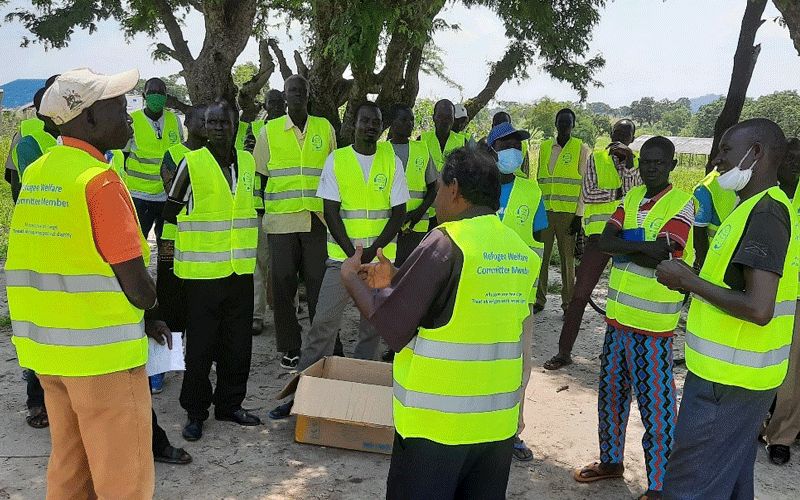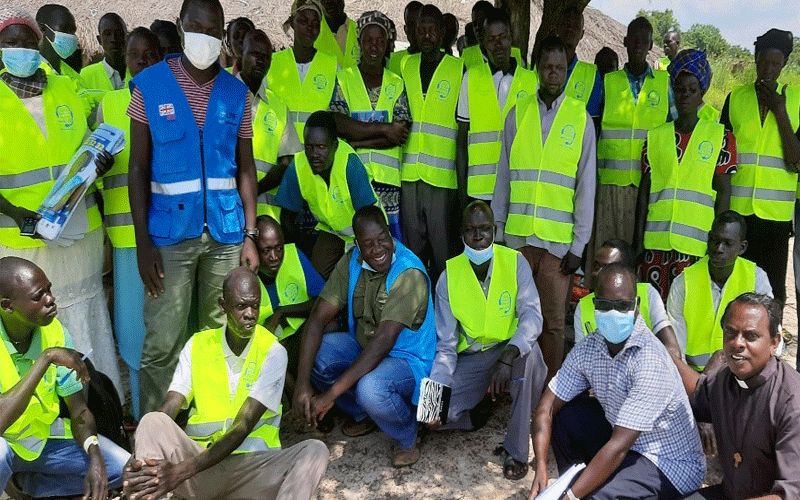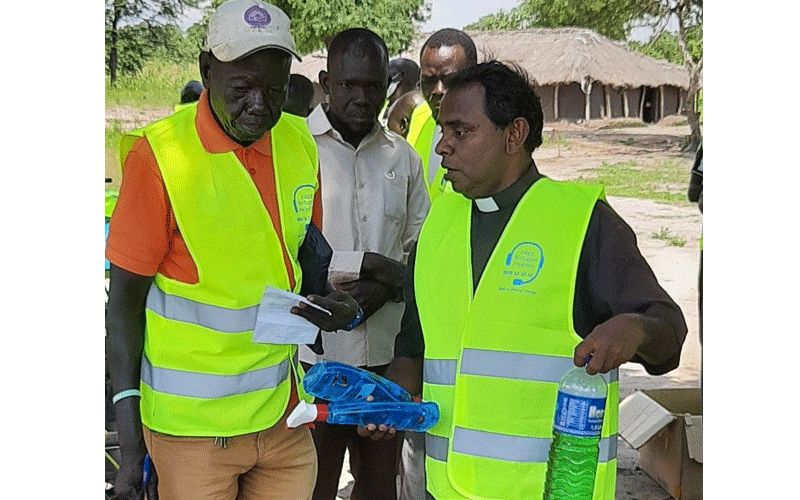
The third cause of deep-rooted tribal hatred among the people of South Sudan is what Fr. Arasu refers to as a natural hatred between the different communities in the country based on their varied ways of lives.
“Pastoral tribes seem to have natural dislike and hatred on agrarian tribes,” he says and adds, “Most of the wars fought since 1955 had one or more of these above root causes.”
In his reflection, “Building Bridges of Peace in South Sudan”, Fr. Arasu notes that South Sudan which, he says is endowed with many resources, has suffered through generations because of the lack of peace.
“South Sudan needs peace more than anything else. This part of Africa, which is rich in fertile soil, water, minerals and more so in people have greatly suffered war and conflict since the 1950s,” he says.
(Story continues below)
The SDB Priest notes that conflicts in both Sudan and South Sudan have been caused by various parties and politics since the colonial times.

“The root of violence goes to the British Imperialists, the Arab, rebel groups such as then Sudan People’s Liberation Army (SPLA), and other tribal warlords,” he says, adding that it is unfortunate that peace is still out of sight in South Sudan.
Fr. Arasu who has ministered in Uganda for over two decades says adds, “Having witnessed the bloody past, it is difficult to believe the coming of peace. Down through the decades, numerous peace agreements have been signed and discarded thoughtlessly.”
“Disunity among the people of South Sudan can be attributed to long years of oppression and the persecution of the native tribes by foreigners, denial of basic rights, systematic looting of native wealth, and other human right abuses,” he continues and adds, “Unfortunately, similar oppression and abuses are mitigated by the native rulers on their own fellow tribes. The oppressed have become the oppressors.”
Attempts to bring peace in South Sudan have always bore little fruit, according to the Priest who highlights the case of 2013, two years after the country became independent.
“Unfortunately, the peace (following South Sudan’s independence) was short-lived. Within two years, the nation broke into war, scattering people and many taking shelter in refugee camps and internally displaced camps,” he says.
Given this background, the native of India’s Tamil Nadu State says, people of South Sudan are pushed into mistrust and suspicion of each other.

“They carry with them feelings of insecurity, low esteem and apathy. It is reflected in their day to day life and every decision they make,” the Director of Don Bosco Palabek Refugee Services asserts.
The battles and the mood for conflicts among the South Sudanese, including those living in refugee camps, are heightened by the fact that past conflicts have never been resolved, says Fr. Arasu.
“In between the wars, no community dialogue was encouraged; often the peace talks involved only political leaders who held ‘synthetic’ peace deals. Full pledged wars had roots in communities at grassroots,” the Missionary Cleric affirms.
He adds, “Until peace is restored at grassroots there can be no meaningful peace at the national level. This can rightly be called ‘Comprehensive Peace’.”
The Indian-born Cleric says that until the “comprehensive peace is achieved, any small incidents such as a little misunderstanding at water-points, playfields and markets can be blown into full-fledged war.”
He says that suspicion and mistrust mingled with prejudice can cause irritation and annoyance that can trigger war, causing enormous damage even lasting for years.

Fr. Arasu calls for capacity building among leaders who, he says, will need to learn about right attitude to tribes and ethnic differences in conflict and post-conflict management in order to tame the protracted violence.
According to the Cleric, tribes and clans should be used for learning and building culture rather than becoming sources of conflict.
Fr. Arasu says that often, most people tend to have only a superficial knowledge of their cultures and traditions. He underscores the need for people to learn the deeper meaning of culture, tradition and their history in the right way in order to have the right attitude to the institution of tribes and cultures.
“Tribes, which can be a good medium to learn cultures, languages and traditions, should not be misused to fuel hatred and discord,” he says.

“Political and civil leaders having brought up in the same situation are unable to go beyond the existing prejudice and bias regarding tribes,” the Priest says, and adds in reference to political and civil leaders, “They should be educated to be neutral and be balanced.”
The Church, the Cleric says, “should be an umbrella embracing under her shade people of all tribes and differences. When they remain neutral, they remain the true voice of God.”
Participation of Salesians in Uganda in the peace meetings, counselling and casual visits to the families are going a long way in restoring peace, especially among refugees seeking solace in the country.
“They (Salesians) have assured the Settlement authorities and the security forces of their support and assistance,” says Fr. Arasu who then implores, “May God continue to help us to build bridges of peace and help us to be bridges of peace and harmony.”
Agnes Aineah is a Kenyan journalist with a background in digital and newspaper reporting. She holds a Master of Arts in Digital Journalism from the Aga Khan University, Graduate School of Media and Communications and a Bachelor's Degree in Linguistics, Media and Communications from Kenya's Moi University. Agnes currently serves as a journalist for ACI Africa.















